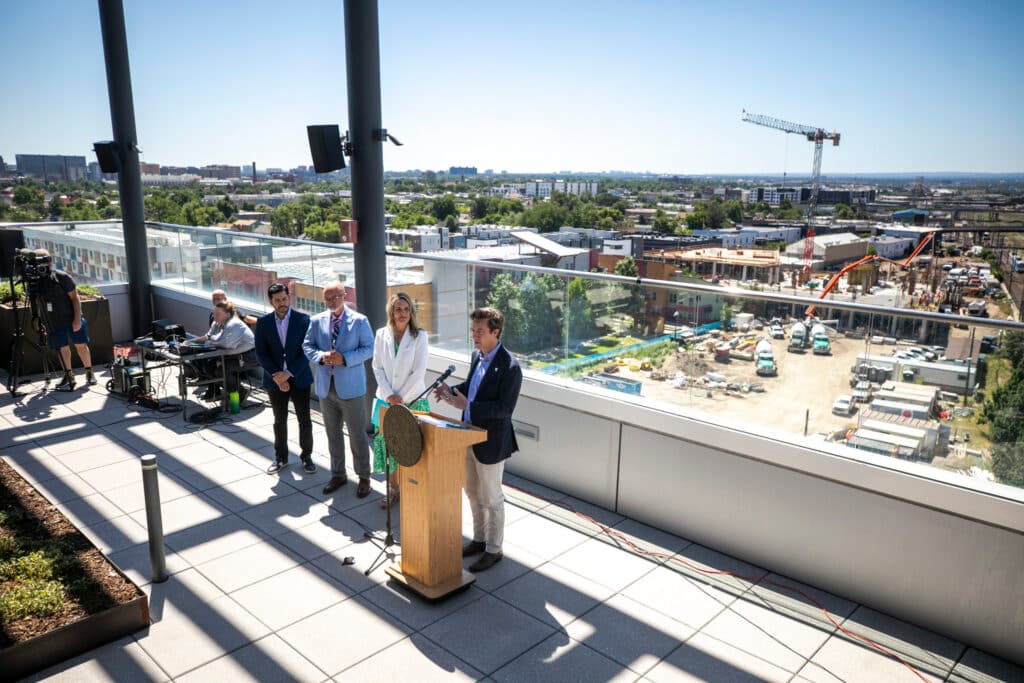Denver needs 40,000 more units of income-restricted housing as the city continues to face an affordability crisis.
“That is an existential need,” Mayor Mike Johnston said at a Tuesday press conference announcing his latest affordable housing fix.
The public-private partnership is called the Partnership for Middle Income Housing Pilot Program. It’s a collaboration with the Denver Housing Authority, which will offer tax rebates for developers who build affordable housing for households making between $60,000 and $100,000.

The mayor hopes the pilot will lead to the creation of thousands of rental homes for working Denverites who cannot afford a place to stay.
In November, he tried to push a new sales tax for affordable housing. Voters shot it down.
“The voters said we don’t want to invest more,” Johnston told Denverite. “We said, we’ve got to find more ways to do it without that investment. This is the way we do it without that investment.”
Why tax relief during a budget crisis?
The tax relief for developers was announced weeks after Johnston informed the city that it was facing a $250 million budget shortfall, caused in part by a decline in tax revenue.
So, why allow developers to get tax relief when the city is far behind the revenue it needs to function?
Johnston says it’s the best way to ensure housing is created for Denver’s working people.
The city did not offer a specific number for how much the city would lose through the tax rebates, though Johnston noted the taxes developers paid were not taken into account in next year’s budget.
“This is housing that will not get built absent of this tool,” Johnston said. “A market rate developer would not build a unit at $1,400 a month when you can build the same unit at $2,000 a month, unless there is an incentive to make that math work.”

The housing created through the program will allow families to stay — and spend — in Denver, he said.
“The economic impact of not just that person being in that unit, paying the rent, but then paying sales tax here, property tax here, income tax here — those all really matter,” he added.
Johnston has enacted several other developer-friendly policies to fuel the construction: creating a new Office of Permitting to speed up the process for launching new developments, streamlining the permitting process across departments, and also looking to cut back on regulations that slow things down.
The state of the housing market
The mayor’s office described housing prices as “skyrocketing.”
While rents are sky high, they are not rising. For the first time in 15 years, rents are dropping and are expected to stay on a downtown trajectory citywide.
There’s also a historic glut of new housing entering the market. Home prices for buyers are largely stable.
Still, the cost of housing is out of reach for many working Denverites — teachers, nurses, sheriff deputies, construction workers and others. Currently, more than half of Colorado renters are cost-burdened, according to a new report from Mile High United Way.

The number of eviction court cases is also at an all-time high. Despite renters having more leverage in the market, living here is proving impossible for many.
Both DHA and the mayor say action is necessary.
“We're not waiting for the market to correct itself,” said Joaquín Cintrón Vega, chief executive officer of the Denver Housing Authority. “We're not waiting for others to solve the crisis. DHA and the city and county of Denver are doing what trailblazers do. We are acting boldly, responsibly and with purpose.”











